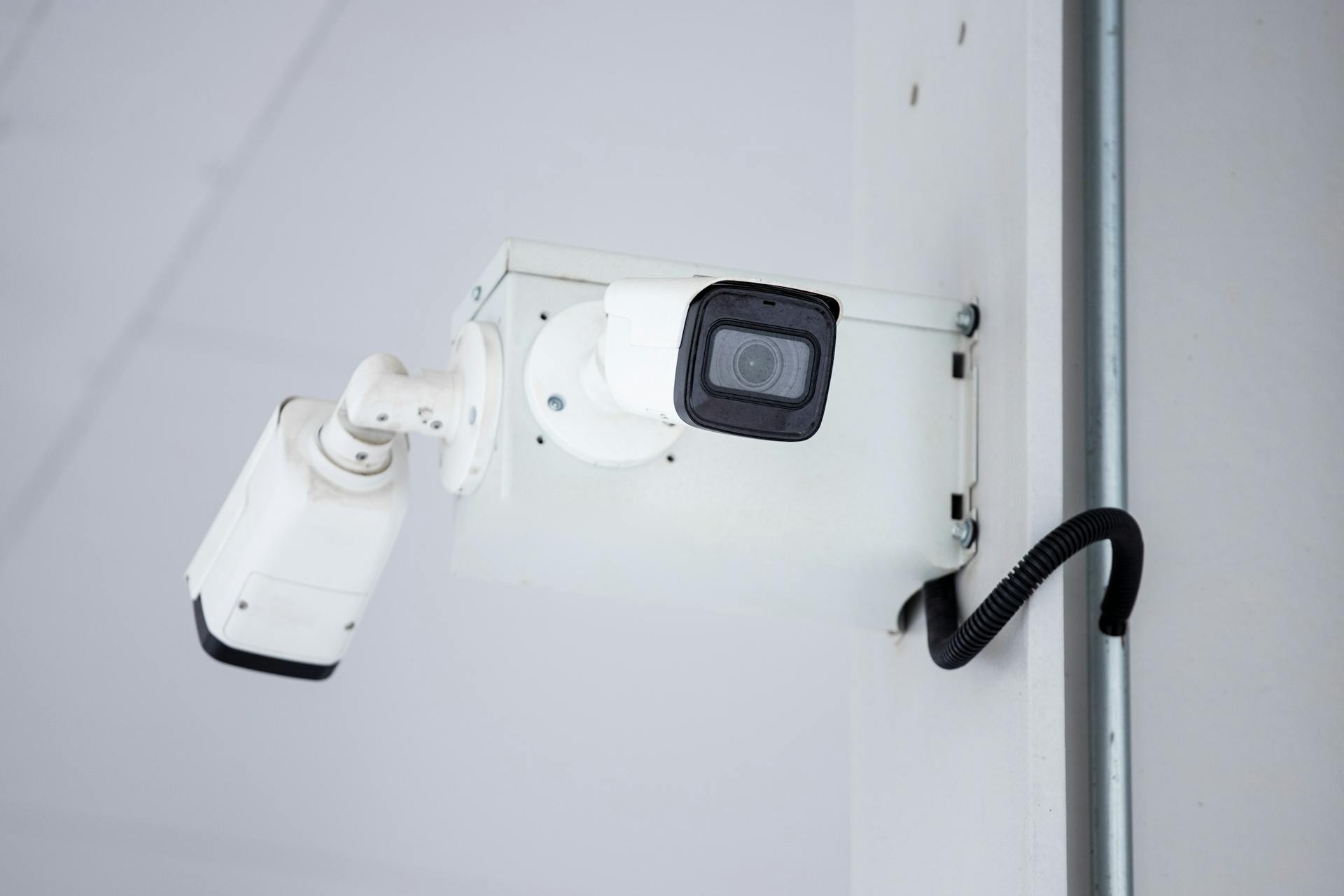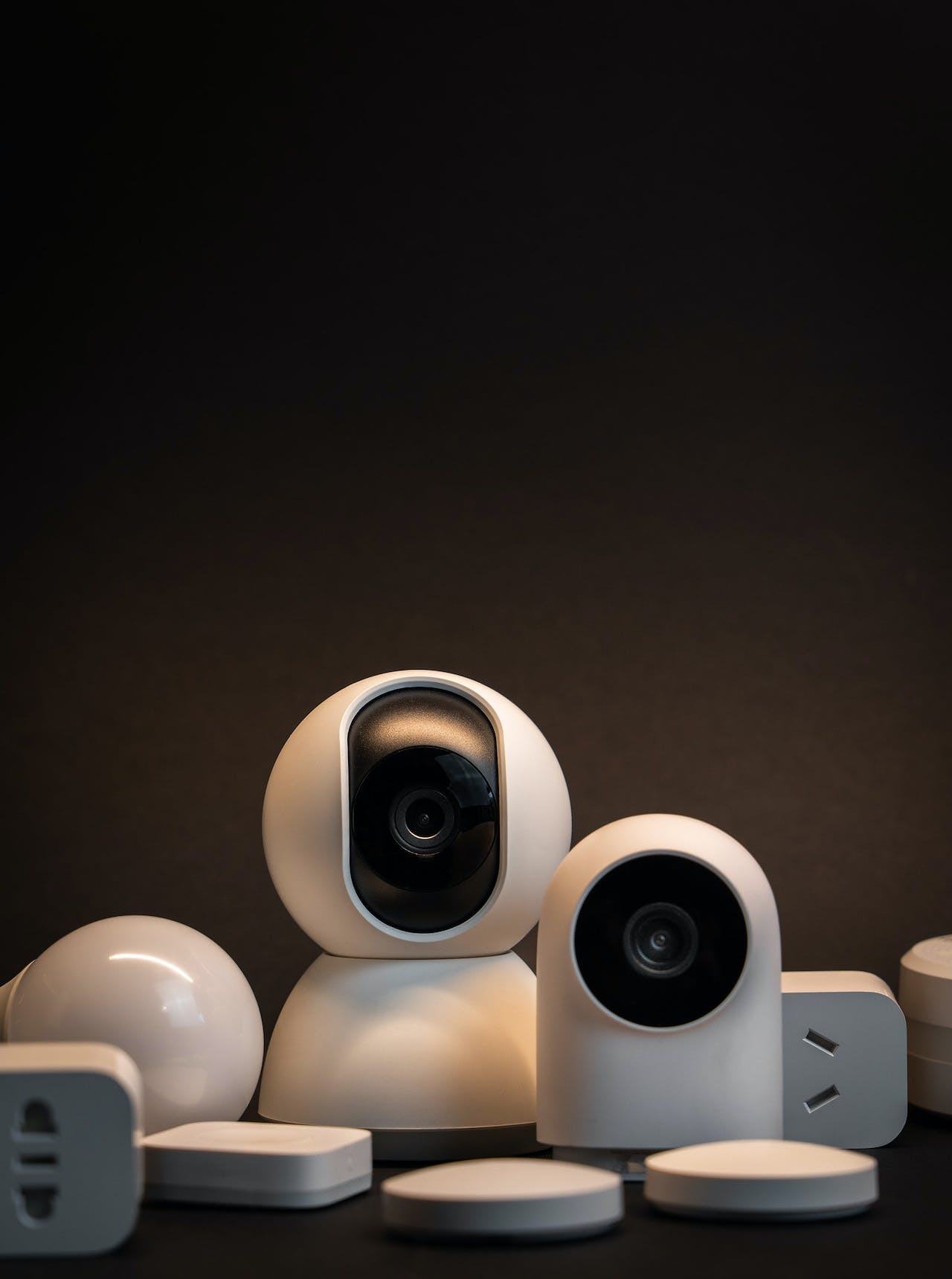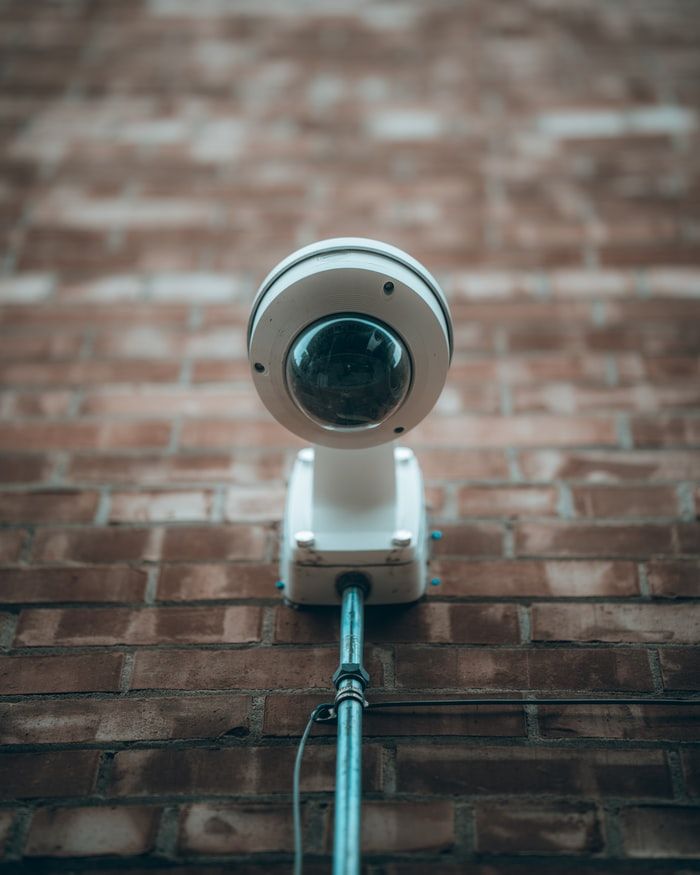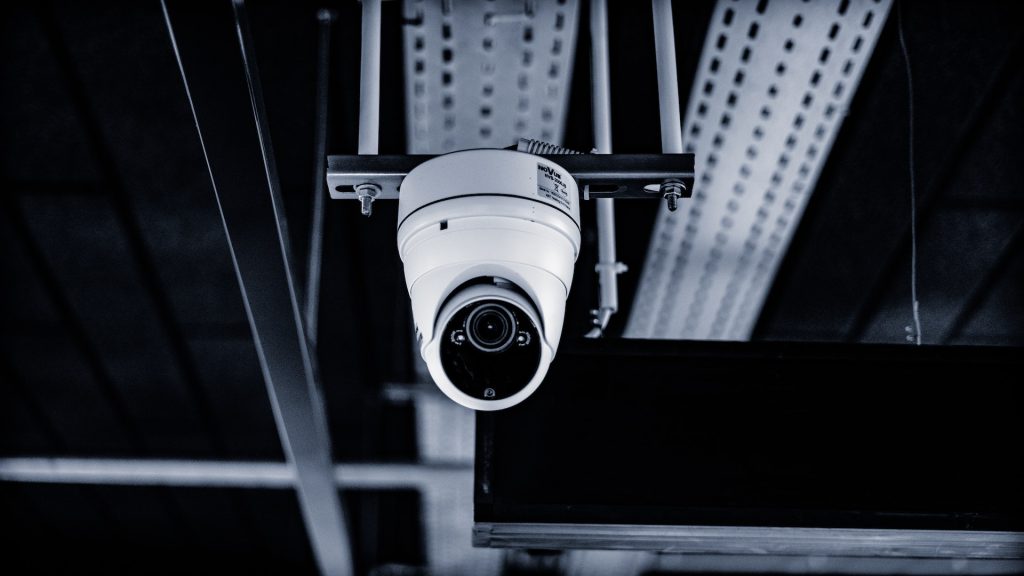How to Choose Security Camera
In an increasingly interconnected world, security is among the top priority for homeowners and businesses. A security camera system is one of the most effective tools for safeguarding your property and loved ones. With a wide range of options available, getting to choose the right security camera can be a challenging task. This comprehensive guide should walk you through the essential factors to consider when selecting a security camera system that fits your needs and provides peace of mind.

The Importance of Security Cameras
Security cameras have evolved from simple, bulky devices to sophisticated, user-friendly systems that offer high-definition video quality and a multitude of features. Their importance in today’s world cannot be overstated. Here are some key reasons why security cameras are essential:
1. Deterrence:
Visible security cameras act as a deterrent to potential intruders and vandals. Criminals are less inclined to target a property with visible cameras.
2. Evidence:
Security cameras provide crucial evidence for law enforcement and insurance claims in the unfortunate chance of a break-in, vandalism, or any other criminal activities. High-resolution footage can help identify perpetrators and strengthen your case.
3. Remote Monitoring:
Modern security camera systems allow you to monitor your property remotely. You can check on your home or business from anywhere using your smartphone, tablet, or computer.
4. Alerts and Notifications:
Many security cameras can send alerts and notifications when they detect motion, sound, or other suspicious activities. This immediate notification can help you take action promptly.
5. Peace of Mind:
Knowing that your property is under surveillance provides peace of mind, especially when you are away. You can relax easier, knowing that you have an extra layer of security.
Types of Security Cameras
Before diving into the selection process, it’s vital to understand the various types of security cameras available. Each type has its unique features, advantages, and ideal use cases. The most usual types of security cameras include:
1. Dome Cameras:
Dome cameras are named for their dome-shaped enclosures. They are versatile and ideal for indoor and outdoor use. Dome cameras are often used in commercial settings due to their unobtrusive design, and some models are vandal-resistant.
2. Bullet Cameras:
Bullet cameras have a cylindrical and elongated shape, resembling a bullet or a small tube. They are excellent for outdoor use and are easily mountable. Bullet cameras are known for their long-range and focused view.
3. PTZ Cameras (Pan-Tilt-Zoom):
PTZ cameras offer remote control over their pan, tilt, and zoom functions, allowing you to adjust the camera’s field of view. They are ideal for monitoring large areas and tracking moving objects.
4. Wireless Cameras:
Wireless cameras are easier to install and do not require extensive cabling. They are suitable for both indoor and outdoor use and often connect to your network via Wi-Fi. Wireless cameras can be battery-powered or powered via an electrical source.
5. Indoor Cameras:

Indoor cameras are specifically designed for use within buildings. They are typically compact and may offer features like two-way audio, making them suitable for home security.
6. Outdoor Cameras:
Outdoor cameras are built to endure the elements and are more robust than indoor models. They often come with weatherproof or vandal-resistant housing to protect against harsh weather conditions and tampering.
7. Fixed vs. Varifocal Lenses:
Some cameras have fixed lenses with a set field of view, while others have varifocal lenses that allow you to adjust the field of view. Varifocal cameras provide more flexibility but may be pricier.
8. Day/Night Cameras:
Day/night cameras are designed to capture high-quality images in both well-lit and low-light conditions. They often feature infrared (IR) LEDs for night vision.
9. Wide Dynamic Range (WDR) Cameras:
WDR cameras are ideal for environments with varying light levels. They can capture clear images even when there are bright highlights and dark shadows in the same scene.
10. License Plate Recognition (LPR) Cameras:
LPR cameras are specialized cameras designed to capture license plate details. They are commonly used in parking lots, toll booths, and gated communities.
Factors to Assess When Choosing a Security Camera
Now that you’re familiar with the different types of security cameras, let’s explore the key factors to consider when selecting the right system for your needs.
1. Location and Purpose:
Before selecting a camera, consider where you intend to install it and its purpose. Do you need indoor or outdoor cameras? Will they be placed in high-traffic areas or secluded spots? The location and purpose will determine the type of camera and its features.
2. Resolution:
Camera resolution refers to the clarity and sharpness of the images it captures. Higher-resolution cameras provide more detailed footage, which can be crucial for identifying people or objects. Common resolutions include 720p (HD), 1080p (Full HD), and 4K (Ultra HD).
3. Field of View (FOV):
The field of view is the area that a camera can capture. Choosing a camera with an appropriate FOV for your needs is essential. Wide-angle cameras are suitable for broad areas, while narrow-angle cameras are best for specific points of interest.
4. Low-Light Performance:
Consider the lighting conditions in the spots where the camera will be installed. If it’s a low-light environment, choose a camera with good low-light performance, often indicated by features like IR night vision.
5. Audio:
Some security cameras come with built-in microphones and speakers, allowing for two-way audio. This feature can help communicate with visitors or deter intruders.
6. Power Source:
Determine how the camera will be powered. Wired cameras are typically powered via Ethernet cables or power cables. Wireless cameras can be battery-powered, solar-powered, or connected to an electrical source.
7. Storage Options:
Consider how you want to store the camera’s footage. Most cameras offer options like cloud storage, onboard microSD card storage, or network-attached storage (NAS) solutions.
8. Remote Viewing and Alerts:
Modern security cameras often offer remote viewing via mobile apps or web interfaces. Choose a security camera with features like motion detection and push notifications, which alert you to any suspicious activity.
9. Integration with Smart Home Systems:
If you have a smart home ecosystem, check if the camera is suitable with your existing devices and platforms, like Amazon Alexa or Google Assistant.
10. Durability and Weather Resistance:
For outdoor cameras, durability and weather resistance are essential. Look for cameras with IP (Ingress Protection) ratings that indicate their resistance to dust and water.
11. Wired vs. Wireless:
Wired cameras are generally more reliable but may require professional installation. Wireless cameras are more straightforward to install but rely on Wi-Fi, which can be less stable.
12. Budget:
Determine your budget and prioritize features that are most important to you. While high-end cameras offer advanced capabilities, there are budget-friendly options that still provide adequate security.
13. Installation and Maintenance:
Consider whether you’ll install the cameras yourself or hire a professional. Some cameras are designed for DIY installation, while others may require expert setup.
Top Security Camera Brands and Models to Choose from
When it comes to picking a security camera, there are numerous reputable brands and models to consider. Here are some well-known brands that offer quality security camera systems:
1. Arlo:

Arlo is known for its wireless and battery-powered security cameras, making them ideal for both indoor and outdoor use. Their cameras offer features like cloud storage, motion detection, and integration with smart home platforms.
2. Nest (Google Nest):
Nest, now part of Google Nest, offers a range of smart home products, covering indoor and outdoor security cameras. These cameras are popular for their high-quality video and seamless integration with other Nest products.
3. Ring (by Amazon):
Ring, owned by Amazon, is a popular choice for video doorbells and outdoor security cameras. Their products offer features like two-way audio, motion detection, and cloud storage. Ring also integrates with Amazon Alexa.
4. D-Link:
D-Link offers a variety of affordable indoor and outdoor security cameras with features like remote viewing, motion detection, and sound detection. They are suitable for homeowners on a budget.
5. Swann:
Swann provides a wide range of security camera systems, including wired and wireless options. They offer cameras with high resolutions, night vision, and DVR/NVR recording options.
6. Lorex:
Lorex specializes in high-definition security camera systems, including 4K options. They offer a variety of cameras, DVRs, and NVRs for both residential and commercial use.
7. Amcrest:
Amcrest is known for its cost-effective security cameras with various features such as pan-tilt-zoom, two-way audio, and remote viewing. They offer both wired and wireless options.
8. Hikvision:
Hikvision is a worldwide leader in security and surveillance solutions, providing a wide range of high-quality cameras for various applications. They are popularly used in commercial and industrial settings.
It’s essential to research and compare different camera models within these brands to find the one that best suits your needs. Read customer reviews, consider your specific requirements, and make an informed decision.
DIY vs. Professional Installation
When it comes to installing your preferred security camera system, you can choose from two main options: DIY (Do-It-Yourself) or professional installation. Each approach has its advantages and considerations.
DIY Installation:
Pros:
– Cost-Effective: DIY installation can save you money, as you won’t incur professional installation fees.
– Flexibility: You have control over where and how you install the cameras.
– Suitable for Small Projects: DIY is ideal for small homes or businesses with a limited number of cameras.
Cons:
– Technical Skill Required: You need to have a basic understanding of networking and camera setup.
– Time-Consuming: Installing multiple cameras can be time-consuming, especially if you are not experienced.
– Limited Warranty Support: Some manufacturers may offer limited warranty support for DIY installations.
Professional Installation:
Pros:
– Expertise: Professional installers have the proper knowledge and experience to set up your system correctly.
– Time-Saving: Professionals can complete the installation more quickly and efficiently.
– Technical Support: You have access to technical support and assistance if issues arise.
Cons:
– Cost: Professional installation can get expensive due to labor fees.
– Limited Control: You may have less control over the installation process and camera placement.
The choice between DIY and professional installation depends on your technical skills, the complexity of your project, and your budget. Whether you opt for DIY installation or choose to have professionals set up your system, the ultimate goal is to have a reliable and effective security camera solution that offers peace of mind and protects your property.
DIY installation can be a viable option if you are comfortable with technical tasks and have a small-scale project. For larger or more complex installations, or if you prefer the peace of mind that comes with professional expertise, it’s advisable to seek a professional security system installer.
Final Tips and Considerations
Here are some supplemental tips and considerations to help you make an informed decision when trying to choose your security camera system:
1. Check Local Regulations
Before installing security cameras, be aware of local privacy and surveillance regulations, which may govern where you can place cameras and how you can use the footage.
2. Cloud Storage vs. Local Storage
Consider your preferences for storing camera footage. Cloud storage offers convenience but may come with subscription fees. Local storage on microSD cards or network-attached storage (NAS) provides more control.
3. Regular Maintenance
Ensure that your cameras are regularly maintained, with lenses cleaned and firmware updated. Regular maintenance helps to maximize their effectiveness.
4. Network Security
Secure your Wi-Fi network to prevent unauthorized access to your camera feeds. Use strong passwords and enable encryption.
5. Camera Placement
Position cameras to cover critical spots and points of entry, such as doors and windows. Consider sightlines and angles for optimal coverage.
6. Test the System
After installation, thoroughly test your security camera system to ensure that all cameras are functioning correctly and that remote access and alerts are working as expected.
7. Evaluate Expansion Options
Think about future expansion. If you anticipate needing additional cameras, choose a system that allows for scalability.
8. Warranty and Support
Review the manufacturer’s warranty and support options. A longer warranty and good customer support can be valuable.
9. User Reviews and Recommendations
Look for user reviews and recommendations from trusted sources to learn about the real-world performance of the camera models you’re considering.
10. Consider Privacy
Be mindful of the privacy of individuals who may be captured on camera, especially in residential areas. Avoid positioning cameras in locations where privacy concerns may arise.

Choose the Right Security Camera for Your Needs
Selecting the right security camera system is a significant step in enhancing the safety and security of your home or business. The process involves evaluating your specific needs, understanding the different types of cameras, and considering factors like resolution, field of view, and installation options. By carefully assessing your requirements and researching the available options, you should make an informed decision that aligns with your security goals.
If you need a comprehensive CCTV system to address all your safety needs, you can rely on Southwest Integrated Solution! You can choose the best security systems from the most reliable manufacturers and suppliers, plus expert installers to ensure that everything works effectively. Contact us today to learn more and set up your security system!

